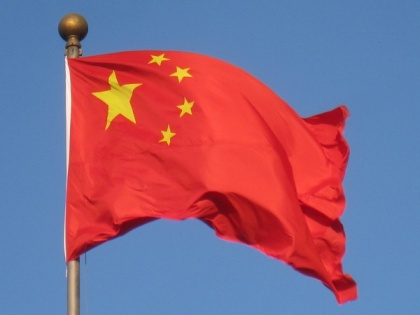China uses phone search data to target Uyghurs: Report
By ANI | Published: May 5, 2023 09:08 PM2023-05-05T21:08:12+5:302023-05-05T21:10:09+5:30
Beijing [China], May 5 : Police in Xinjiang have relied on a list of 50,000 multimedia files determined to ...

China uses phone search data to target Uyghurs: Report
Beijing [China], May 5 : Police in Xinjiang have relied on a list of 50,000 multimedia files determined to be "violent and terrorist" to flag Uyghur and other Turkic Muslim residents for interrogation, according to a report from Human Rights Watch.
Among the findings by the New York-based group was that Uyghurs could trigger a police interrogation just by storing the Quran on their phone, Radio Free Asia (RFA) reported.
Human Rights Watch said in a statement that the use of the list is another example of China's "abusive use of surveillance technology in Xinjiang."
The list is used by police to compare against data received from two apps that authorities have required residents of Xinjiang's capital, Urumqi, to install on their phones, according to Maya Wang, the acting Asia director at Human Rights Watch, RFA reported.
"Essentially, these apps on people's phones are checking against this list, the master list, as well as searching for other information," she told Radio Free Asia in an interview.
The data collected by the apps, known as Jing Wang Wei Shi and Feng Cai, and the master list examined by Human Rights Watch fits in with other Xinjiang surveillance systems, which Wang described as "multidimensional and multi-layered" and includes checkpoints and the Chinese government's collection of biometrics, RFA reported.
"Human Rights Watch has repeatedly raised concerns about China's approach to countering acts it calls 'terrorism' and 'extremism,'" the group said in a statement on Wednesday.
"China's counterterrorism law defines 'terrorism' and 'extremism' in an overly broad and vague manner that facilitates prosecutions, deprivation of liberty, and other restrictions for acts that do not intend to cause death or serious physical harm for political, religious, or ideological aims," Human Rights Watch said, RFA reported.
The master list of multimedia files is part of a large database of more than 1,600 data tables from Xinjiang that was leaked to The Intercept in 2019. The news orgzation reported that Urumqi police conducted surveillance and arrests between 2015 and 2019 based on texts of police reports found on the database.
The list examined by Human Rights Watch was located in a different part of the same database and has not been previously reported on or analyzed, the group said.
Human Rights Watch also found that during nine months from 2017 to 2018, police conducted nearly 11 million searches of 1.2 million mobile phones in Urumqi. The police search found a total of 11,000 matches with the master list of more than 1,000 different files on 1,400 phones.
Human Rights Watch's analysis found photo, audio and video files that contain violent content, "but also other material that has no evident connection to violence," including common religious materials, the group said, RFA reported.
The UN Human Rights Council should create an investigation and concerned governments should identify technology compes involved in the phone surveillance and act to end their involvement, Human Rights Watch said in its statement.
"I think what happens in Xinjiang is a very important one for the future of China, but also how governments will use these systems," Wang told RFA, adding, "How do they relate to technology and human freedoms in general in the world? And so that's why we have been trying to piece these puzzles together."
Disclaimer: This post has been auto-published from an agency feed without any modifications to the text and has not been reviewed by an editor
Open in app